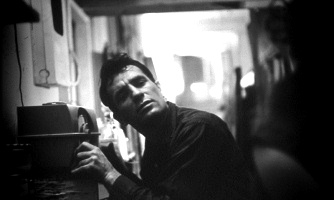La Grande table (2ème partie) L'histoire de l'humain vue par Emmanuel Todd* 01/09/2017
Olivia Gesbert doit apprécier le titre "Où en sommes-nous" (qui est "nous" ?), elle qui systématiquement posait à chacun de ses invités "Comment allons-nous ?" afin de pouvoir entendre avec un plaisir mal dissimulé "Mal, très mal, c'est la crise !".
Un bon client pour la chaîne, Emmanuel Todd, très bon même. Et aussi pour la presse qui publie interviews, tribunes et éditoriaux
Exemple d'une tribune : Alain Blum : « Emmanuel Todd met l’histoire au service de ses engagements politiques »* (Dans une tribune au « Monde », l’historien estime que la rigueur scientifique de Todd s’amenuise au fil des années, au profit d’explications destinées à étayer ses opinions contre l’euro ou pour la Russie de Poutine.) LE MONDE | 31.08.2017 à 08h31 • Mis à jour le 31.08.2017 à 10h00 | Par Alain Blum (Historien, démographe)
Exemple d'article Le monde selon Emmanuel Todd Le démographe écarte les théories du choc des civilisations. Et place les structures familiales au cœur de sa lecture du passé et du futur proche.Le démographe français s’attelle à une esquisse de l’histoire humaine dans laquelle il applique sa théorie d’un effet déterminant des structures familiales sur les destins politiques des nations et manifeste une détestation toujours plus explicite envers la globalisation, le libre-échange et l’euro. Avec en plus une solide méfiance envers l’Allemagne et une tendresse toute particulière pour la Russie.
Pour comprendre Emmanuel Todd (et France Culture), on pourra aussi prendre des chemins de traverse et écouter les considérations proposées dans les documentaires Apocalypse How Eleanor Rosamund Barraclough on how different cultures have viewed the end of the world et Apocalypse Nigh *
Il existe aussi un très beau documentaire scientifique de la série Natural histories intitulé sobrement Toad. Mais ça n'a rien à voir.
* This year the Bulletin of Atomic Scientists set its Doomsday Clock at two and a half minutes to midnight, their judgement that humanity had moved closer to its own destruction. It's a theme embraced in popular culture, from the surprise-bestseller, The Ladybird Book of the Zombie Apocalypse to armageddon-chic on the catwalk.
However while politics, pollution and the very real threat of terrorism may indeed have made our world less stable, science broadcaster Robin Ince considers whether our concern with disaster is also age-old and sometimes imagined. Using the archive he explores our longstanding preoccupation with the apocalypse, from religion and science to comedy and drama, and what it tells us about the way we think.
Drawing on diverse sources from nuclear missile tests to the Hitchhiker's Guide to the Galaxy and Orson Wells' infamous radio hoax, Ince discovers how destruction has been portrayed in different ways across the decades, with archive contributions from thinkers including physicist Richard Feynman and philosopher Noam Chomsky.
He hears from contemporary commentators with an interest in the darker side of human thought. Novelist Lionel Shriver and psychotherapist Susie Orbach are among those who explain what the apocalypse means to them.
Ince also searches the archive for practical advice in the event of catastrophe. He meets Professor Lewis Dartnell, a disaster-expert who explains how to reboot civilisation in the event of apocalypse.






